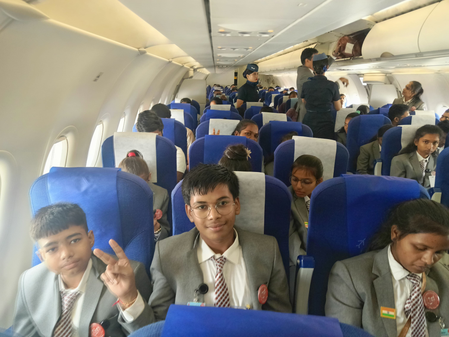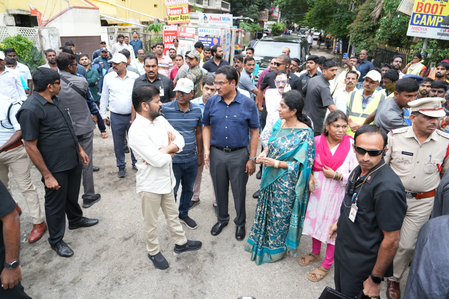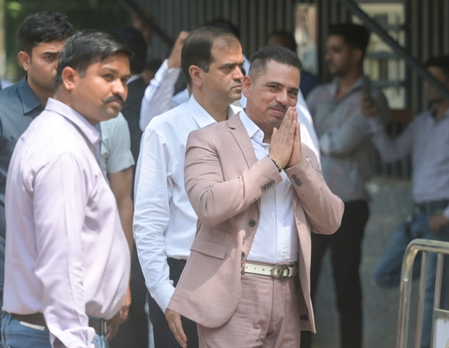
Surat, Aug 10 (IANS) Gujarat’s Minister in charge of Tapi district, Mukesh Patel, visited Surat Airport on Sunday to bid farewell to 28 tribal students embarking on their first flight to Sriharikota as part of the ‘Tapi ke Taare’ project. The students, from the science stream of 15 government schools in the district, will undertake an educational tour of ISRO’s satellite launch centre from August 10 to 13.
At the airport, Patel interacted with the students about their first air travel experience, future career goals, and the opportunities that await in science and technology. He urged them to learn from ISRO scientists and engineers, explore space research in depth, and maintain curiosity throughout their visit. The minister encouraged each student to write a letter to the Prime Minister describing their ISRO experience and the inspiration they draw from it.
Patel praised the Tapi district administration and the Tribal Development Department for launching this initiative, the first of its kind in the state for tribal students. Drawing on the example of former President and “Missile Man” Dr. A.P.J. Abdul Kalam, he motivated the students to pursue higher education and bring pride to their villages, the state, and the nation.
The tour will also include visits to Chennai’s planetarium and zoological park. Patel suggested the students compile their experiences into a souvenir booklet. He congratulated the “Best 28” students — with a notable number of girls among them — and encouraged them to aim even higher in their academic and career pursuits.
District Development Officer Ramniwas Bugalia, Project Administrator Jayantsinh Rathod, Assistant Information Director Sumit Gohil, along with other officials and family members, were present for the send-off.
Tribal communities in Gujarat, comprising nearly 15 per cent of the state’s population, play a vital role in its cultural, ecological, and socio-economic fabric. Spread mainly across districts like Dahod, Narmada, Tapi, Valsad, Dang, and parts of Banaskantha and Sabarkantha, these groups — including Bhils, Dublas, Warlis, and Gamits — have rich traditions in art, music, and sustainable living practices tied to forests and agriculture. Their lands are home to significant biodiversity, making them key stakeholders in conservation efforts such as Gir, Vansda, and Shoolpaneshwar sanctuaries.
–IANS
janvi/pgh




